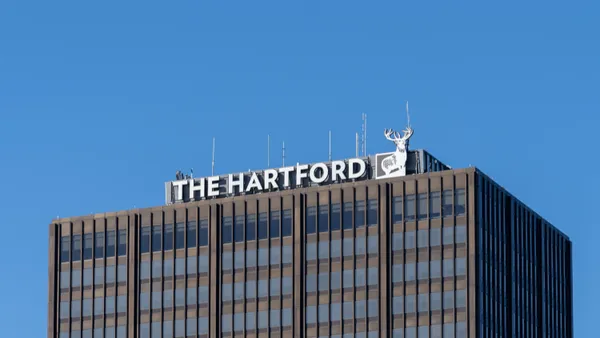Dive Brief:
- Amazon's second headquarters in Arlington, Virginia, will create 400 jobs in 2019, according to an Amazon blog post. The company expects to create 25,000 jobs in the next 10 years and beyond.
- The company has partnered with Virginia residents, teachers and state and local experts to determine "how to increase the talent available in this region to make Virginia an even more attractive destination for innovators large and small," Amazon said. The company is planning skills development programs, including a technical apprenticeship program that provides both classroom and hands-on technical training for transitioning veterans, and Career Choice, an upskilling program for hourly workers.
- The company will fund and introduce AP computer science classes to 27 schools in Virginia as part of its Amazon Future Engineer program. Amazon also will promote literacy programs and robotics clubs within the state, the company said.
Dive Insight:
Amazon — like most big tech companies today — recognizes the necessity of building a diverse, well-trained workforce, hiring top tech professionals and supporting under-served communities.
The proposed investments in computer science classes are a classic example of an employer committing to build sustainable talent pools for in-demand skills.
But not all of the tech giant's initiatives have been without controversy. The Verge recently wrote of "productivity firings" occurring at Amazon warehouses. And when the company raised its minimum wage, it took away stock options and bonuses, although it gave some workers additional pay bumps to make up for those losses.
While jobs for HQ2 are expected to earn $150,000 annually, it's common for tech companies to expect too much from their employees. Amazon is in a unique position compared to other tech companies because it has to support all other facets of its business, including cloud, retail, streaming or shipping.
Expecting an exacerbated workforce hustle is a weakness for many tech companies, with a penchant for the "fetishization" of giving up weekends in favor of coding software. Tech workers often feel the burden of working hours beyond what's already expecting or feel the guilt of not working hard enough.
Hiring crises and employee burnouts are direct results of companies overly concerned with "hemorrhaging money" with aggressive growth targets. ISilicon Valley companies, like Facebook and Google, to offer unique campuses so workers can marry their personal and work lives.














